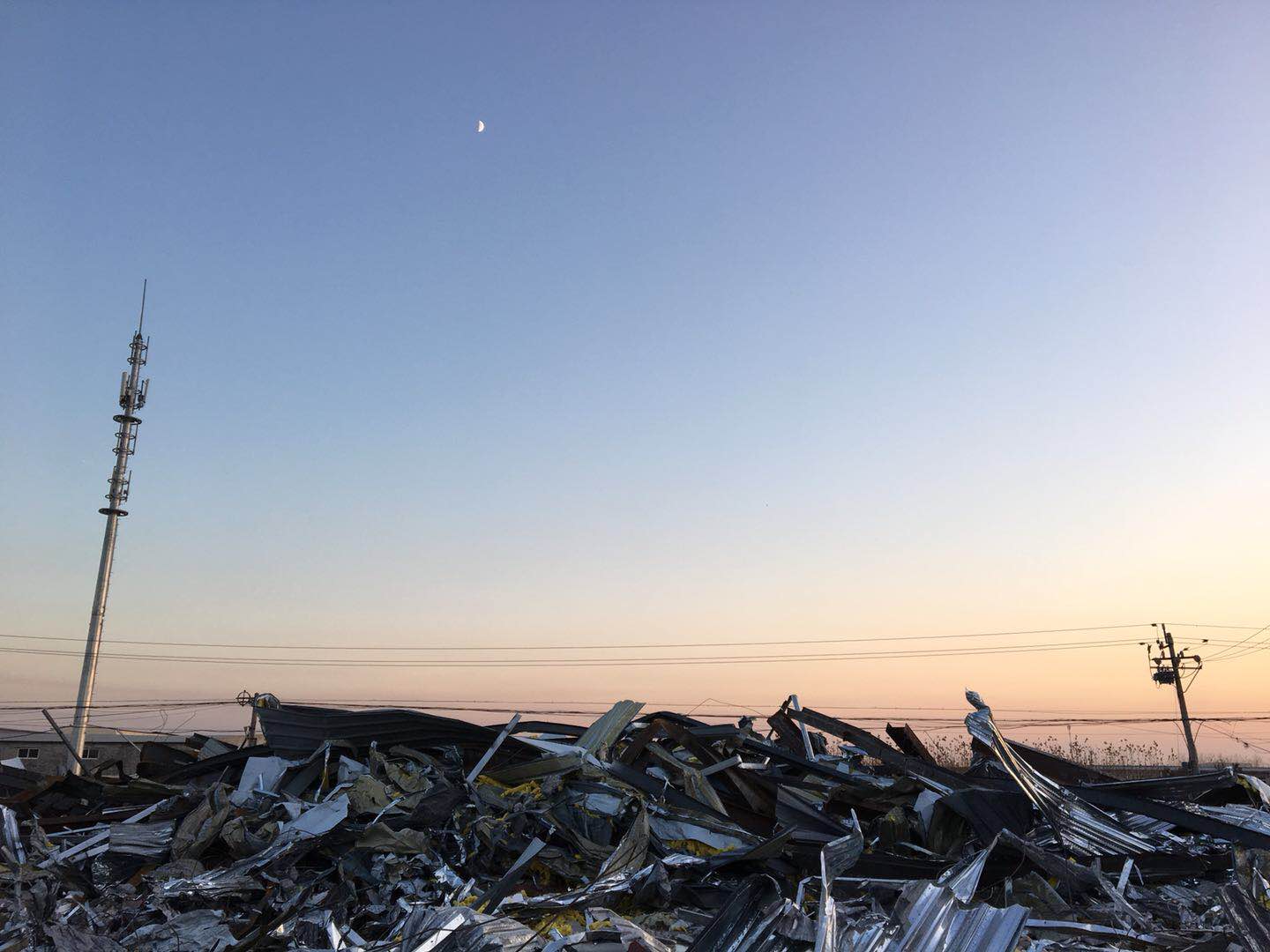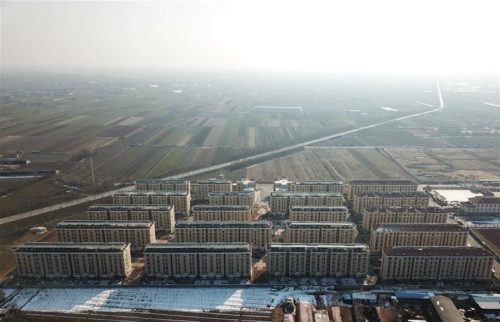City of evictees: A photo essay of Xinjian Village

On Sunday, I visited Xinjian Village 新建村 on the outskirts of Beijing, the place where a fire at Jufuyuan Apartments 聚福缘公寓 on November 18 took the lives of 19 people, according to officials. As a result of that tragedy, migrant workers living in the various dilapidated buildings and dormitories around the village were ordered to move out by November 24. Notices posted around the village stated that electricity and water would be cut off from those buildings on that date.
A similar thing has happened in the urban village of Picun 皮村, located south of Beijing’s main airport in the city’s northeast: A notification (in Chinese) circulated on Monday stating that those in certain rental apartments had until that same evening — 6 p.m., to be exact — to vacate the premises. But it must be noted that the notice lacked a customary red government stamp; a more official-looking notice, posted on November 24, gave a move-out deadline of Friday, December 1.
I visited Picun on Monday, arriving in the evening. I walked around four two-story apartment buildings that had basically completely emptied out. I’m not sure about other parts of the village, but there truly weren’t many people left in the neighborhood I visited.
Picun is a place with lots of migrant workers, so maybe they were simply accustomed to packing quick. But they also received assistance from nonprofit organizations, which were drawn to their cause because of how little time they were given. Here’s a peek at what the village looked like past 6 p.m.:


In my opinion, the situation at Xinjian Village, located just inside South Sixth Ring Road, is more dire, with trash piled up like mountains and demolition happening everywhere. See for yourself. Below are my photographs of Xinjian, taken on Sunday.
Trash and debris piled up, sometimes as high as the nearby buildings.
These three girls were laughing and chatting while moving out. The graffiti on the nearby wall is a number for debt relief.
The text on the wall reads, “Littering: 500 yuan fine!” Five hundred yuan is about $76, which is a hefty amount! Of course, whoever wrote that could just have a wry sense of humor.
Many stores and buildings were demolished, all in the name of safety.
An elder stands at the corner. Temperatures dropped to freezing on Sunday.
Mannequins outside a closed storefront.
Trash and debris in front of abandoned buildings.
The third floor of a practically empty factory. A few people were left on the second-floor dormitory, while some movers milled about on the ground floor.
The view from inside.
A poster of Mao Zedong on a door, with text that reads, “The red sun.” White stickers beside it advertise air-conditioning repair.
Recruitment flyers for jobs ranging from driver to skilled worker to assembly-line clothiers.
A Santa Claus who might be spending Christmas alone.
Lights illuminate an alley between two buildings, with a moon shining high above in the night sky.
Also see:
Anti-eviction protest breaks out in Beijing’s Feijia Village on Human Rights Day
























